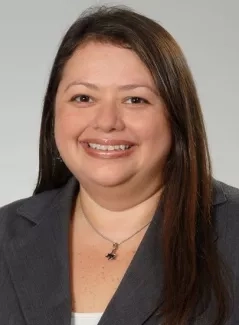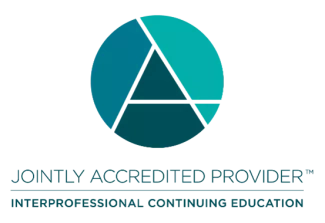Leading Patient Safety: Essentials for Managers and Directors
Don't miss out! Join us for an exclusive Informational Call with faculty on Thursday, January 22, 2026, at 11:00 AM ET. Gain valuable insights and register now to secure your spot.
Not receiving IHI emails? Please ask your IT department to add the ihi.org domain to your organization's Safe Senders list.
Please review our Cancellation Policy
*Prices are listed in USD. Group prices are listed as per-person.
Lead the Way to Safer Care
Join us for a free informational call with faculty on Thursday, January 22, 2026, at 11:00 AM ET. Gain valuable insights and register now to secure your spot.
Through immersive learning, you’ll gain the tools to coach teams effectively, embed reliability and resilience into daily practice, and lead with clarity in both routine operations and times of change. You will examine practices for both identifying and reducing risks to prevent things from going wrong (Safety-I), as well as practices that emphasize anticipating variability, supporting everyday work, and strengthening systems to ensure things go right (Safety-II).
This is more than a course; it’s a catalyst for leaders who want to transform their microsystem and contribute to a culture where patients and staff alike can thrive.
Making the Case: Download the Justification Letter to provide high-level information on the Leading Patient Safety: Essentials for Managers and Directors
Session Agenda
The course consists of 8 online lessons and 8 live webinars. The agenda for this offering is available to download:
Continuing Education

In support of improving patient care, the Institute for Healthcare Improvement is jointly accredited by the Accreditation Council for Continuing Medical Education (ACCME), the Accreditation Council for Pharmacy Education (ACPE), and the American Nurses Credentialing Center (ANCC), to provide continuing education for the health care team.
This program is approved to provide 16 credits for physicians, nurses, pharmacists, and Certified Professional in Patient Safety (CPPS) recertification. Additional credit types pending.
The Institute for Healthcare Improvement designates this live activity for a maximum of 16 AMA PRA Category 1 Credits™. Physicians should claim only the credit commensurate with the extent of their participation in the activity. This activity may also be applicable for other professions that accept AMA PRA Category 1 Credits™.
As a result of this program, attendees will be able to:
Describe the skills, tools, and resources needed to effectively and reliably coach and guide your teams to enhance safety for patients and staff.
Align department-level safety improvement activities to the organization’s goals and overall strategic plan.
Improve safety culture and process reliability to successfully partner with front-line staff and other partners.
Distinguish Safety-I and Safety-II approaches to patient safety - recognizing that Safety-I focuses on identifying and reducing risks and preventing things from going wrong, while Safety-II emphasizes anticipating variability, supporting everyday work, and strengthening systems so things go right.
Articulate the complementary value of combining reactive/protective approaches with proactive/productive ones.
Apply the core components and principles of a fair and just culture to identify and solve problems.
Incorporate strategies of change management, reliability, and resilience into standard work to enhance sensitivity to operations and promote safety in your areas of responsibility.
Instructions
To be eligible for a continuing education certificate, attendees must complete the online evaluation within 30 days of the continuing education activity. After this period, you will be unable to receive a certificate.
Continuing education credits will not be awarded for non-educational activities, including (but not limited to) meals, breaks and receptions.
Planning Committee
Bryce Clark, MPA, BSN/RN, CPHQ, Director Patient Care Services, Children’s Hospital Colorado
Orysia Bezpalko Hernandez, MS, MPH, Harm Prevention and Safety Improvement Manager, Children’s Hospital Philadelphia
Daniel Hyman, MD, MMM, Faculty, IHI
Leah Konwinski, MS, CPE, Director Human Factors and Innovation, Corewell Health Jennifer Lenoci-Edwards, BSN, RN, MPH, Vice President, IHI
David Munch, MD, Faculty, IHI
Katherine Rowbotham, Director of Accreditation, IHI
Jennifer Wiler, MD, MBA, Professor, Emergency Medicine, University of Colorado School of Medicine
James Won, PhD, MS, Human Factors, Mechanical Engineering, Director Human Factors and System Integration, Children’s Hospital of Philadelphia
Disclosure: None of the planners, presenters, or staff for this educational activity have relevant financial relationship(s) to disclose with ineligible companies whose primary business is producing, marketing, selling, re-selling, or distributing healthcare products used by or on patients.
Fees and Scholarships
Registration Rates
Includes 9 online lessons and 8 live hour-long webinars to reinforce, discuss and apply content covered during the online lessons. Prices are listed in USD.
Regular rate: $995 per person
Group of 3 or more: $845.75 per person
Register a group
Scholarships
IHI is pleased to offer a limited number of 25% and 100% scholarships to assist with program registration costs for those working in:
Independent, United States Federally Qualified Health Centers (FQHCs) that are not affiliated with a hospital or health system
Critical Access Hospitals
Independent practices with fewer than 20 physicians
Hospitals with fewer than 50 beds
Members of America's Essential Hospitals
501(c)(3) organization with a defined operating budget of less than $5 million, serving community-based populations
Ministries of Health
Faith-based health institutions
Skilled Nursing Facilities
To apply for a scholarship, please complete the online Scholarship Application by February 9, 2026. IHI will not consider applications submitted after this date.
All Scholarships are reviewed on an individual basis. If multiple individuals from the same organization wish to apply for a scholarship, each individual must submit an application.
To ensure equal distribution of funds, all scholarship applications are reviewed using the same scoring criteria. All awarded amounts are final.
Please note, scholarships are available for program registration costs only, and do not cover travel, food, or accommodation costs associated with attending a program.
Review IHI Cancellation Policy
Logistics
Start Today
Click on the Register button to login or create an account.
Visit the IHI Education Platform to view program details and complete your registration for the training.
Invoices can be found and paid through your My Account section
Need Help?
Beyond HRO: Human-Centered Resilience Engineering as a Future-Ready Framework for Patient Safety
Don't miss out! Join us for an exclusive Informational Call with faculty on Tuesday, November 11, 2025 from 10:00 AM–11:00 AM ET. Gain valuable insights and register now to secure your spot.
Not receiving IHI emails? Please ask your IT department to add the ihi.org domain to your organization's Safe Senders list.
Please review our Cancellation Policy
*Prices are listed in USD. Group prices are listed as per-person.
Advanced Patient Safety Concepts
Join us for a free informational call with faculty on Tuesday, November 11, 2025, at 10:00 AM ET. Gain valuable insights and register now to secure your spot.
A New Approach to Safety in Complex Systems
Health care operations today are increasingly complex, and traditional methods alone are no longer enough to keep pace. As faculty member Leah M. Konwinski, MS, CPE, CPHFH, explains, “The reality of health care operations, in that it is wickedly complex and growing more so, necessitates an approach to safety performance that is informed by complexity theory and human-centered resilience engineering (HRE).”
Beyond HRO addresses the persistent disconnect between patient safety efforts and clinical operations, introducing a balanced framework that builds on traditional methods while incorporating advanced safety science. Participants are exposed to high-level models and tools, paired with guided application and coaching, helping them reframe challenges and bring practical, future-ready strategies back to their organizations.
Making the Case: Download the Justification Letter to provide high-level information on the Beyond HRO: Human-Centered Resilience Engineering as a Future-Ready Framework for Patient Safety
Session Agenda
The Beyond HRO program blends expert faculty guidance with interactive learning and real-world application. Over 15 weeks, participants will explore new ways of thinking about complexity, address the persistent disconnect between safety and clinical operations, and practice applying resilience engineering principles to their organizations. Each session is designed to introduce high-level models and tools, challenge assumptions, spark fresh insights, and equip leaders with practical strategies that balance traditional methods with advanced safety science.
The agenda for this program is available to download:
Continuing Education

In support of improving patient care, the Institute for Healthcare Improvement is jointly accredited by the Accreditation Council for Continuing Medical Education (ACCME), the Accreditation Council for Pharmacy Education (ACPE), and the American Nurses Credentialing Center (ANCC), to provide continuing education for the health care team.
This course is approved to provide 12 credits for physicians, nurses, Certified Professional in Patient Safety (CPPS) recertification, and Certified Professional in Human Factors in Health Care (CPHFH) recertification.
The Institute for Healthcare Improvement designates this live activity for a maximum of 12 AMA PRA Category 1 Credits™. Physicians should claim only the credit commensurate with the extent of their participation in the activity. This activity may also be applicable for other professions that accept AMA PRA Category 1 Credits™. This course includes scheduled live components as part of the overall educational experience. Participation in both the enduring and live portions is required to achieve the stated learning objectives.
- Describe why a transformed approach to safety is needed in today’s complex health systems.
- Differentiate between “Safety-I” and “Safety-II” approaches to safety management, and how the approaches complement each other to enable reliable outcomes.
- Employ human-centered resilience engineering concepts, models, and tools to any safety initiative or complement any traditional quality improvement project.
- Apply key concepts to both proactive and reactive safety activities to advance the efficacy and future-readiness of your program.
- Assess the role of human factors and the importance of qualitative inquiry in driving more effective, targeted interventions.
Instructions
To be eligible for a continuing education certificate, attendees must complete the online evaluation within 30 days of the continuing education activity. After this period, you will be unable to receive a certificate.
Continuing education credits will not be awarded for non-educational activities, including (but not limited to) meals, breaks and receptions.
Already attended?
To view continuing education (CE) credits and session materials:
- Click on the "My IHI" link on the top of this page
- Once you are logged in, click on the "Credits" tab to see CE information.
- Click on the "My Participation" tab and then the button that says "My Materials" to see course materials.
Planning Committee
- Oren Guttman, MD, MBA, System Vice President for High Reliability & Patient Safety, Jefferson Health, Edward Asplundh Chief Quality & Patient Safety Officer, Jefferson Health Abington
- Leah M. Konwinski, MS, CPE, CPHFH, Director, Human Factors & Innovation. System Quality, Safety & Experience, Corewell Health
- Jennifer Lenoci-Edwards, BSN, RN, MPH, Vice President, IHI
- Katherine Rowbotham, MA, Director of Accreditation, IHI
- Jeremy Schwartz MSN, RN, CNL, Director of Nursing Clinical Quality, Practice & Performance Excellence, Jefferson Abington and Lansdale Hospital
Disclosure: None of the planners, presenters, or staff for this educational activity have relevant financial relationship(s) to disclose with ineligible companies whose primary business is producing, marketing, selling, re-selling, or distributing healthcare products used by or on patients.
Fees & Scholarships
Registration Rates
Regular Rate: $1,600 per person
Group (3 or more): $1,360 per person
This rate includes 8 virtual sessions, six optional office hours (minimum of 2 office hours required) and the use of all tools and resources.
Scholarships
IHI is pleased to offer a limited number of 15%, 25%, and 50% scholarships to assist with program registration costs for those working in:
- Independent, United States Federally Qualified Health Centers (FQHCs) that are not affiliated with a hospital or health system
- Critical Access Hospitals
- Independent practices with fewer than 20 physicians
- Hospitals with fewer than 50 beds
- Members of America's Essential Hospitals
- 501(c)(3) organization with a defined operating budget of less than $5 million, serving community-based populations
- Ministries of Health
- Faith-based health institutions
- Skilled Nursing Facilities
To apply for a scholarship, please complete the online Scholarship Application by January 23, 2026. IHI will not consider applications submitted after this date. IHI will notify all applicants of their scholarship status by January 30, 2026.
All Scholarships are reviewed on an individual basis. If multiple individuals from the same organization wish to apply for a scholarship, each individual must submit an application.
To ensure equal distribution of funds, all scholarship applications are reviewed using the same scoring criteria. All awarded amounts are final.
Please note, scholarships are available for program registration costs only, and do not cover travel, food, or accommodation costs associated with attending a program.
Review IHI Cancellation Policy
Logistics
Start Today
- Click on the Register button to login or create an account.
- Visit the IHI Education Platform to view program details and complete your registration for the training.
- Invoices can be found and paid through your My Account section
Need Help?
Redesigning Event Review with Root Cause Analyses and Actions (RCA2)
To register a group of 2+, fill out the form above
View a recording and slides from a previous informational call.
Fill out this form to download the program brochure.
Program includes self-paced online content, three live All-Learner Calls, social learning with your peers, and access to one-on-one coaching with expert faculty.
Not receiving IHI emails? Please ask your IT department to add the ihi.org domain to your organization's Safe Senders list.
When accidents occur in health care, providers and health systems have an urgent responsibility to respond to prevent future harm.
In this online course, you'll learn to improve your event review process with a unique approach — endorsed by leaders in patient safety across the United States and abroad — that expands upon traditional root cause analysis.
Moving swiftly after a safety incident occurs, you'll learn to establish a small team to conduct interviews, develop a flowchart, and pinpoint vulnerabilities in your system: poor equipment design, inadequate training, or insufficient resources.
Most importantly, by the end of the course you'll gain tools and strategies to address these vulnerabilities with sustainable actions that really work to prevent future harm. This is the focus of Root Cause Analyses and Actions — or RCA2.
Session Agenda
This program consists of 3 live online sessions and self-paced activities to be completed outside of the live sessions. Self-paced activities between sessions are required and should take no longer than one hour to complete per session.
The agenda for the March 2026 offering is available to download:
Continuing Education
In support of improving patient care, the Institute for Healthcare Improvement is jointly accredited by the Accreditation Council for Continuing Medical Education (ACCME), the Accreditation Council for Pharmacy Education (ACPE), and the American Nurses Credentialing Center (ANCC), to provide continuing education for the health care team.
Continuing education credits for this program are still being finalized and will be updated shortly.
After attending this course, attendees will be able to:
- Define an improved event review process with a unique approach that expands upon traditional root cause analysis.
- Identify how to form a multidisciplinary team to collect data and evaluate current state.
- Apply evidence-based tools and techniques to address vulnerabilities with sustainable actions to prevent future harm.
Planning Committee
- Patricia A. McGaffigan, RN, MS, CPPS, Vice President, IHI
- Lauren Cameron, Project Manager, Education
- Jessica Behrhorst, MPH, CPPS, CPQH, CPHRM, Quality, Safety and HRO Consultant
- Lauge Sokol-Hessner, MD, CPPS, Clinical Associate Professor, Medicine, University of Washington
Disclosure: None of the planners, presenters, or staff for this educational activity have relevant financial relationship(s) to disclose with ineligible companies whose primary business is producing, marketing, selling, re-selling, or distributing healthcare products used by or on patients.
CE Instructions
In order to be eligible for a continuing education certificate, attendees must complete the online evaluation within 30 days of the continuing education activity. After this period, you will be unable to receive a certificate.
Continuing education credits will not be awarded for non-educational activities, including (and not limited to) meals, breaks and receptions.
Already attended?
To view continuing education (CE) credits and session materials:
- Click on the "My IHI" link on the top of this page
- Once you are logged in, click on the "Credits" tab to see CE information.
- Click on the "My Participation" tab and then the button that says "My Materials" to see course materials.
Fees & Scholarships
Fee: $549 per person
Includes self-paced online content, three live All-Learner Calls, social learning with your peers, and access to one-on-one coaching with expert faculty.
Scholarships
IHI is pleased to offer a limited number of free and 25% scholarships to assist with program registration costs for those working in:
- Independent, United States Federally Qualified Health Centers (FQHCs) that are not affiliated with a hospital or health system
- Critical Access Hospitals
- Independent practices with fewer than 20 physicians
- Hospitals with fewer than 50 beds
- Members of America's Essential Hospitals
- 501(c)(3) organization with a defined operating budget of less than $5 million, serving community-based populations
- Ministries of Health
- Faith-based health institutions
- Skilled Nursing Facilities
Scholarship applications are due February 24, 2026. Scholarship decisions will be announced on March 3, 2026.
All Scholarships are reviewed on an individual basis. If multiple individuals from the same organization wish to apply for a scholarship, each individual must submit an application. Group discounts are also available, see information above.
To ensure equal distribution of funds, all scholarships applications are reviewed using the same scoring criteria. All awarded amounts are final.
Review IHI Cancellation Policy
Logistics
Start Today
- Click on the Register button to login or create an account.
- Visit the IHI Education Platform to view program details and complete your registration for the training.
- Invoices can be found and paid through your My Account section.
Maricia Silvera-Batson, RN
Scarborough Health Network
Scarborough Health Network
"This course is great for the novice to the expert in regards to RCA knowledge. It can be completed while working a full-time job. The content is very relevant to anyone responsible for conducting RCAs and is jammed packed with exceptional resources and examples."
James Laughton, MD
Hamad Medical Corporation
Hamad Medical Corporation
"Excellent course, as usual, from IHI. The quality of content and learning continues to be inspiring."
Missy Polito
West Virginia University Medicine
West Virginia University Medicine
"This course was the 'icing on the cake' for me. I have been performing RCAs for over 5 years and was able to relate easily to each of the lessons. These lessons confirmed what I already knew, but also provided additional details and learning to expand upon my knowledge of the RCA process."





